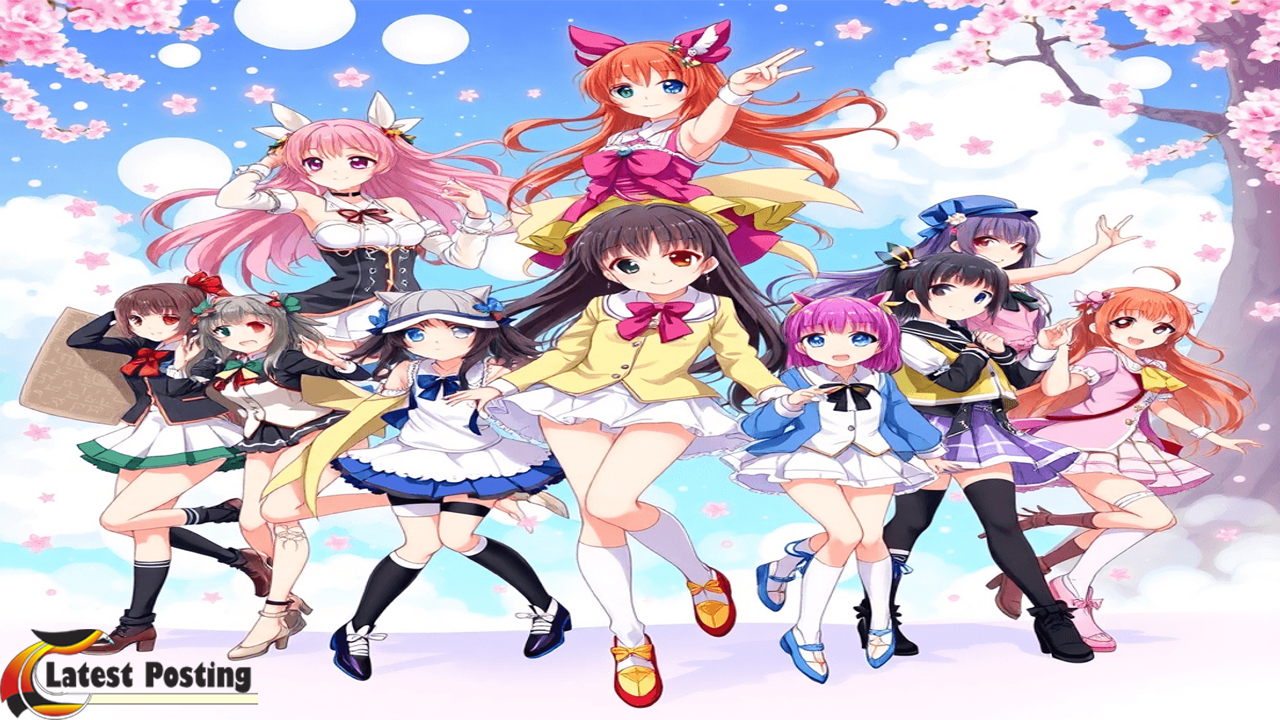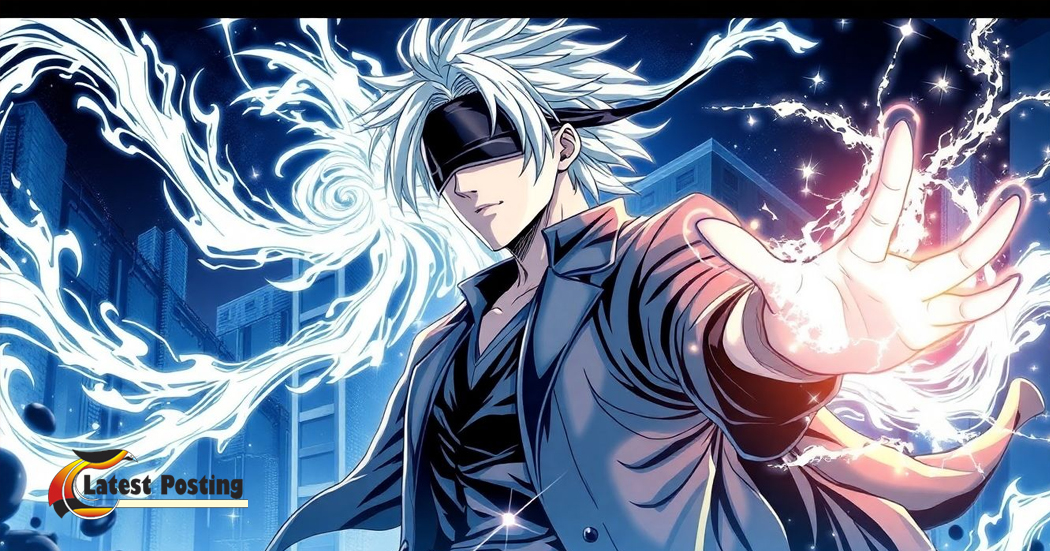Anime girls have become cultural icons that go beyond just Japanese animation. These unique female characters win over hearts all around the world with their one-of-a-kind designs, captivating personalities, and ability to tell powerful stories that resonate with diverse audiences.
The world of anime girls offers a wide range of characters who defy traditional stereotypes. From determined fighters to brilliant scientists, these characters demonstrate the medium’s flexibility in representing female roles. Their influence reaches beyond entertainment, shaping fashion trends, inspiring cosplay communities, and leaving lasting impacts on popular culture.
Key aspects that define anime girls include:
- Distinctive Visual Styles – Recognizable aesthetics from cute chibi designs to realistic proportions
- Complex Personalities – Characters that display depth through their growth and relationships
- Cultural Impact – Influence on fashion, art, and entertainment globally
- Diverse Representations – Characters spanning different ages, backgrounds, and roles
The appeal of anime girls lies in their ability to embody both strength and vulnerability. These characters often challenge conventional stereotypes, presenting nuanced portrayals that reflect real-world experiences and aspirations. Whether they’re saving the world or going through everyday life, anime girls continue to push creative boundaries and connect with viewers on emotional levels.
The Evolution of Anime Girls

The journey of anime girls through decades showcases a fascinating transformation from simple character designs to complex, multi-dimensional personalities. The 1960s marked the birth of iconic female characters with Astro Boy’s Uran setting early standards for cute, supportive roles.
The 1970s brought a revolutionary shift with the magical girl genre. Sally the Witch and Cutie Honey introduced young viewers to strong female leads who could fight their own battles. These series laid the groundwork for future hits like Sailor Moon, which redefined female representation in anime during the 1990s.
Notable Series That Shaped the Genre
- Sailor Moon (1992): Created a new standard for magical girl series with its ensemble cast of diverse female characters
- Revolutionary Girl Utena (1997): Challenged gender norms through its protagonist’s rejection of traditional feminine roles
- Ghost in the Shell (1995): Presented Major Motoko Kusanagi as a complex female lead in a male-dominated cyberpunk world
The 2000s saw anime girls evolve beyond traditional archetypes. Fullmetal Alchemist‘s Winry Rockbell represented a skilled technician whose strength wasn’t defined by combat abilities but by her technical expertise and emotional intelligence.
Contemporary Trends
Modern anime has embraced diverse representations of female characters:
- Professional Development Focus
- New Game! depicts women in game development
- Shirobako explores anime production through female perspectives
- Sports and Competition
- Girls und Panzer combines cute aesthetics with tactical warfare
- Sound! Euphonium showcases competitive musicianship
- Complex Psychological Narratives
- Wonder Egg Priority tackles mental health issues
- Violet Evergarden explores post-war trauma and emotional growth
Character Development Innovation
Recent series have introduced nuanced character progression methods:
Subtle Growth Patterns
- Characters develop through everyday interactions
- Personal growth occurs through realistic challenges
- Relationships evolve naturally over time
Breaking Stereotypes
- Female leads take traditionally male roles
- Characters show both strength and vulnerability
- Diverse body types and personalities represented
The industry continues pushing boundaries with series like Jujutsu Kaisen featuring physically strong female characters who maintain agency without sacrificing femininity. 86-Eighty Six presents military leaders like Vladilena Milizé who challenge societal norms while displaying tactical brilliance.
Studios now prioritize creating female characters with distinct personalities, goals, and growth trajectories. This evolution reflects broader societal changes and demands for authentic representation in media. The rise of streaming platforms has enabled more experimental approaches to character writing, allowing creators to explore unconventional storylines and character development paths.
For an in-depth understanding of the cultural impact of these transformations, one can refer to this [critical survey of graphic novels and manga](https://ebin.pub/critical-survey-of-graphic-novels-manga-9781587659553-
Character Archetypes in Anime Girls
Anime girls embody distinct personality types that have become iconic within the medium. These character archetypes create deep emotional connections with viewers through their unique traits and behaviors.
1. The Classic Tsundere
- Initially cold and hostile
- Gradually reveals a warm, caring nature
Examples: Asuka Langley (Evangelion), Taiga Aisaka (Toradora!)
2. The Genki Girl
- Energetic and optimistic
- Natural leader with infectious enthusiasm
Examples: Haruhi Suzumiya, Chika Fujiwara (Kaguya-sama)
3. The Yamato Nadeshiko
- Traditional Japanese ideal of femininity
- Graceful, kind, and strong-willed
Examples: Belldandy (Ah! My Goddess), Yukino Yukinoshita (Oregairu)
4. The Kuudere
- Cool and calculated exterior
- Hidden depths of emotion
Examples: Rei Ayanami (Evangelion), Homura Akemi (Madoka Magica)
5. The Dandere
- Shy and quiet around strangers
- Opens up to close friends
Examples: Hinata Hyuga (Naruto), Sawako Kuronuma (Kimi ni Todoke)
These archetypes resonate with audiences by reflecting real-world personality traits and emotional struggles. Viewers often see themselves in these characters, finding comfort in their growth journeys and relatable experiences. The combination of strength and vulnerability makes these characters particularly compelling, as they showcase both power and human fragility.
The popularity of these archetypes stems from their ability to create memorable character dynamics and drive engaging storylines. Each type brings unique perspectives to narratives, whether through internal conflicts or interactions with other characters. This diversity allows creators to craft complex relationships and emotional depth that keeps audiences invested in their stories.
Character merchandise sales and fan engagement demonstrate the lasting impact of these archetypes. Fans collect figures, create artwork, and participate in cosplay to celebrate their favorite characters, building communities around shared appreciation for these distinct personality types.
Popular Genres Featuring Anime Girls
The diversity of anime genres has created unique spaces for female characters to shine, each offering distinct storytelling approaches and character development opportunities.
Slice-of-Life Anime with Strong Female Characters
K-On! stands as a prime example of slice-of-life storytelling, following five high school girls in their journey through music and friendship. The series excels at portraying authentic character growth through seemingly mundane moments – from struggling with instrument practice to balancing school responsibilities.
March Comes in Like a Lion presents Akari Kawamoto and her sisters, who demonstrate remarkable emotional depth as they support the protagonist through his professional shogi career. Their daily lives reveal complex layers of personal sacrifice, familial bonds, and quiet strength.
Notable Slice-of-Life Series with Complex Female Leads:
- A Place Further Than the Universe – Four teenage girls embark on an expedition to Antarctica
- Violet Evergarden – A former soldier learning to understand human emotions
- Non Non Biyori – Rural life through the eyes of young girls in the countryside
These shows masterfully weave character development into everyday scenarios:
- School Life Challenges – Academic pressure, club activities, and friendship dynamics
- Family Relationships – Sibling bonds, parental expectations, and household responsibilities
- Personal Growth – Self-discovery, overcoming insecurities, and finding one’s path
Fruits Basket exemplifies how slice-of-life elements can blend with supernatural elements while maintaining focus on emotional storytelling. The female protagonist, Tohru Honda, faces realistic challenges despite the fantastical setting – from processing grief to supporting others while dealing with her own struggles.
The genre’s strength lies in its ability to present relatable situations where female characters display strength without requiring extraordinary circumstances. Through detailed animation of daily routines and careful attention to character expressions, these series create intimate portraits of their protagonists’ inner worlds.
Laid-Back Camp demonstrates how slice-of-life anime can celebrate female friendships and individual pursuits. The show’s protagonists discover the joys of camping while developing their own interests and supporting each other’s growth. Their interactions feel genuine, highlighting how strong female characters can be portrayed through ordinary yet meaningful experiences.
These series share a common thread of exploring emotional complexity through everyday moments:
- Morning routines revealing character traits
- Quiet conversations that build relationships
- Small victories that mark personal growth
- Subtle gestures showing character development
The slice-of-life genre continues to evolve, offering increasingly nuanced portrayals of female characters navigating real-world challenges while maintaining authenticity and emotional depth.
Action and Adventure Series with Female Leads

Action-packed anime series have evolved beyond the traditional male-dominated narratives, introducing powerful female characters who shape the story’s direction. Attack on Titan showcases Mikasa Ackerman, whose combat prowess and unwavering determination make her an integral part of humanity’s survival. Her character arc balances intense battle sequences with deep emotional connections, particularly her bond with Eren Yeager.
Demon Slayer brings us Nezuko Kamado, who defies typical demon stereotypes while displaying remarkable strength. Despite her transformation, she maintains her humanity and fights alongside her brother, creating a unique dynamic rarely seen in action anime.
Notable female-led action series include:
- Kill la Kill – Ryuko Matoi’s quest for revenge combines explosive action with commentary on power and identity
- Claymore – Clare’s journey as a half-demon warrior presents complex themes of humanity and sacrifice
- Black Lagoon – Revy’s character breaks conventional female stereotypes with her ruthless efficiency and complex personality
These series excel at character development through combat situations. The fight scenes serve as catalysts for growth, revealing deeper aspects of their personalities. Violet Evergarden demonstrates this perfectly – each battle sequence reflects Violet’s internal struggles and evolution from a living weapon to a person discovering her humanity.
Modern action anime emphasizes psychological depth alongside physical strength. Vivy: Fluorite Eye’s Song features an AI protagonist whose combat abilities complement her journey of self-discovery. The series balances high-stakes action with thoughtful exploration of consciousness and purpose.
The production quality of these shows has reached new heights, with fluid animation bringing female warriors to life. Studios like MAPPA and ufotable have raised the bar for action sequences, ensuring these characters’ fighting styles reflect their unique personalities and backgrounds.
The Appeal of Anime Girls to Fans
The appeal of anime girls goes beyond just their looks. They form deep emotional connections with fans all over the world. These characters often have intricate personalities and relatable challenges that resonate with viewers personally.
Character Design and Personality Traits
Anime girls are known for their distinctive character design and personality traits, which contribute to their popularity among fans. Here are some key elements that make these characters appealing:
- Distinctive visual elements like unique hairstyles and eye designs
- Carefully crafted personalities that range from fierce warriors to gentle nurturers
- Voice acting that brings characters to life with memorable catchphrases
- Character development arcs that allow fans to grow alongside their favorites
The anime community has formed strong connections through a shared love for these characters. Fan artists create tribute artwork, while cosplayers bring these beloved characters into reality. This creative expression strengthens the bond between fans and their favorite anime girls.
Merchandise and Collectibles
The passion for anime girls has led to the creation of a large merchandise industry that caters to both collectors and casual fans:
Popular Collectible Categories:
- Action Figures – Highly detailed sculptures capturing iconic poses
- Nendoroids – Cute chibi versions with interchangeable parts
- Body Pillows (Dakimakura) – Featuring full-length character designs
- Keychains and Accessories – Portable ways to showcase favorite characters
- Limited Edition Items – Exclusive merchandise from special events
These collectibles serve as physical reminders of the characters that fans adore. Many collectors proudly display their items, creating dedicated spaces that celebrate their beloved series and characters.
Community Impact
Local anime shops have become gathering places where fans can come together and share their excitement for collecting. Convention venues turn into bustling marketplaces where rare merchandise is exchanged and new friendships are formed over common interests.
The growth of online communities has expanded this connection on a global scale:
- Discord servers dedicated to specific characters
- Social media groups for collectors
- Trading communities for rare items
- Unboxing videos and collection showcases
This aspect of fandom driven by merchandise creates a unique feeling of belonging. Each item tells a story of personal connection, whether it’s a figure that was saved up for or a cherished purchase made at a convention. The shared experience of collecting brings fans closer together, nurturing lasting friendships and creating memories tied to their favorite anime girls.
Game Adaptations Featuring Anime Girls
The gaming industry has embraced anime aesthetics with open arms, creating unique experiences that blend Japanese animation style with interactive gameplay. Highschool of the Dead stands as a prime example, transforming the popular anime series into an action-packed gaming experience where players face hordes of zombies alongside iconic anime girl characters.
Zombie Wave Shooters and Anime Aesthetics
The fusion of anime girls and zombie wave shooters has created a distinctive subgenre with unique characteristics:
- Visual Style: Games like Onechanbara and School Girl/Zombie Hunter maintain authentic anime aesthetics while delivering intense action sequences
- Character Design: Detailed character models capture the essence of anime art style, from expressive eyes to dynamic movement animations
- Environmental Effects: Cel-shaded graphics and particle systems create dramatic visual impact during combat scenarios
Gameplay Mechanics and AI Systems
Modern anime-themed zombie shooters implement sophisticated gameplay systems:
- Dynamic AI Pathfinding
- Zombies display group behavior patterns
- Enemies adapt to player movement and positioning
- Environmental obstacles influence zombie routing decisions
- Combat Systems
- Melee-ranged combat combinations
- Character-specific special abilities
- Weapon customization options
Sound Design and Music
The audio experience in these games creates an immersive atmosphere:
- J-pop and rock soundtracks during action sequences
- Traditional Japanese instruments in ambient tracks
- Dynamic audio cues for enemy detection
- Character voice acting maintaining authentic anime style
Game Comparison Analysis
Different titles approach the genre with varying levels of success:
Onechanbara Z2: Chaos
- Fast-paced hack-and-slash combat
- Stylized blood effects
- Limited enemy variety
School Girl/Zombie Hunter
- Team-based tactical elements
- Clothing damage system
- Enhanced character customization
Highschool of the Dead: Extended Play
- Story-driven narrative
- Quick-time events
- Faithful adaptation of source material
These games succeed in capturing the essence of anime girl characters while delivering engaging gameplay loops. The combination of Japanese animation aesthetics with zombie survival mechanics creates unique gaming experiences that appeal to both anime fans and action game enthusiasts. Interestingly, this blend of genres could even inspire future titles like a potential Girls Frontline first-person shooter game which would further expand the boundaries of this genre. The genre continues to evolve with new titles introducing innovative features while maintaining core elements that made earlier games successful.
Contemporary Issues Addressed by Anime Girls
Modern anime series have evolved beyond traditional storytelling, tackling pressing societal issues through the lens of female protagonists. Here are some ways in which anime girls are addressing contemporary issues:
1. Mental Health and Cyberbullying
Wonder Egg Priority stands out as a groundbreaking series addressing mental health, cyberbullying, and the pressures faced by young women in the digital age. The show’s protagonist, Ai Ohto, navigates complex themes of suicide prevention and online harassment, reflecting real-world challenges faced by teenagers.
2. Gender Dynamics in the Workplace
The rise of workplace-focused anime has brought attention to gender dynamics in professional settings. Aggretsuko presents Retsuko, a red panda office worker dealing with workplace harassment, gender expectations, and the struggle to maintain work-life balance. Through its unique blend of cute aesthetics and heavy themes, the series critiques corporate culture and gender-based discrimination.
3. Subverting Traditional Gender Roles
Recent isekai titles have reimagined traditional gender roles. My Next Life as a Villainess subverts common tropes by featuring a female protagonist who defies societal expectations, creating her own path rather than following predetermined roles. This approach resonates with viewers seeking representation beyond conventional character archetypes.
4. Exploring Technology’s Impact on Society
Technology’s impact on society receives thoughtful exploration in series like Serial Experiments Lain. The show examines identity, consciousness, and human connection in an increasingly digital world through its female lead. These narratives reflect growing concerns about technology’s influence on personal relationships and self-expression.
5. Incorporating Diverse Themes
Popular series are now incorporating:
- Mental health awareness
- LGBTQ+ representation
- Body image discussions
- Career-life balance
- Digital privacy concerns
- Social media influence
These themes demonstrate anime’s capacity to address contemporary issues while providing compelling entertainment. The medium continues to evolve, offering nuanced portrayals of female characters facing modern challenges.
Future Trends for Anime Girls in 2024
The anime industry continues to push boundaries with female character representation. 2024 brings exciting developments in how anime girls are portrayed across different mediums:
- AI-Enhanced Animation – Studios now use artificial intelligence to create more fluid movements and expressive faces for anime girl characters
- Virtual Reality Integration – VR anime experiences let fans interact with their favorite characters in immersive 3D environments
- Diverse Body Types – Character designs break traditional molds, showcasing a wider range of physical appearances and personalities
- Cross-Cultural Elements – Anime girls incorporate fashion and cultural elements from various global influences
- Mental Health Awareness – Stories tackle deeper psychological themes through female protagonists’ personal growth journeys
The anime community plays a vital role in shaping these trends. Joining fan discussions, creating fan art, or participating in cosplay events helps celebrate and support the evolution of anime girl characters. Many streaming platforms now feature dedicated sections for female-led anime series, making it easier to discover new shows with compelling heroines.
Popular discord servers and social media groups provide spaces for fans to share recommendations and discuss their favorite characters while building lasting friendships within the community.
FAQs (Frequently Asked Questions)

What are anime girls and why are they significant in anime and manga?
Anime girls are female characters featured in anime and manga, often embodying various character archetypes. They hold significant cultural importance as they represent diverse traits and narratives, contributing to the popularity of these mediums.
How have anime girls evolved over the years?
The evolution of anime girls can be traced through key series such as ‘Magical Girl’ genres and ‘Girls und Panzer.’ These series have shaped the representation of female leads, showcasing a shift towards stronger character portrayals and contemporary trends that emphasize depth in female characters.
What are some common character archetypes found in anime girls?
Common archetypes include the tsundere, who is initially cold but shows warmth, and the shy but strong type. These traits resonate with audiences, enhancing the appeal of these characters and contributing to their popularity across various genres.
Which genres prominently feature anime girls?
Anime girls can be found across multiple genres including slice-of-life, fantasy, romance, and action. Each genre showcases unique characteristics that highlight their strengths, emotional depth, and growth through everyday challenges or intense narratives.
Why do fans feel a strong connection to anime girls?

Fans are drawn to anime girls due to their visual design, personality traits, and emotional connections established through storytelling. Additionally, merchandise like body pillows fosters a sense of belonging within the fandom community.
What contemporary issues do recent anime series with female protagonists address?
Recent series featuring female leads tackle modern societal issues such as gender roles and cultural representation. These narratives often promote positive messages regarding empowerment and representation through thoughtful storytelling techniques.




